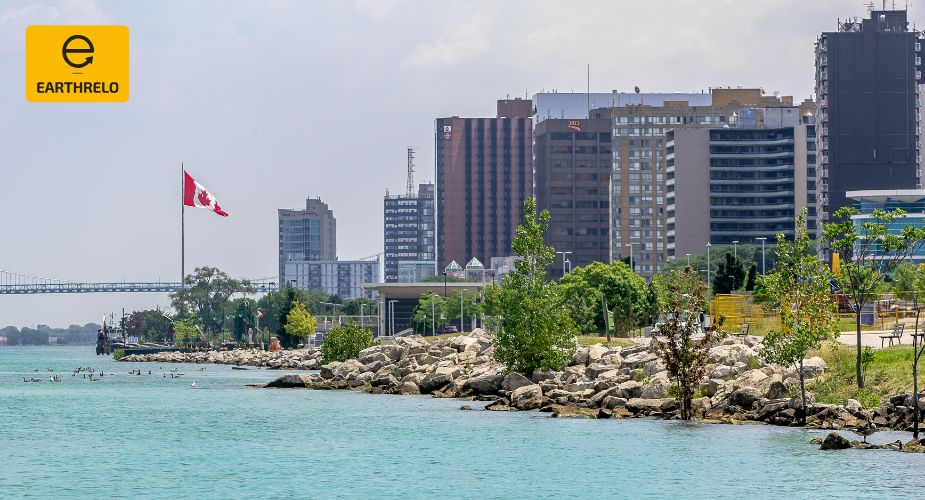- December 20, 2024
Relocating to France from USA is an exciting opportunity to experience a blend of rich history, exquisite cuisine, and a laid-back lifestyle. However, a successful transition requires careful planning and thoughtful preparation. From understanding the local culture to organizing financial matters, every detail matters to ensure a seamless move.
This guide will walk you through the essential steps to simplify the process, reduce stress, and make your move a smooth and enjoyable experience.
Researching Your New Home
Moving to a new country is a life-changing decision, and understanding your destination thoroughly is the first step to a successful relocation. France is a country of diverse regions, each offering unique charms and opportunities for expatriates.
Understanding French Culture and Lifestyle
Adjusting to life in France involves embracing the cultural differences that make it unique. From the relaxed pace of life to the importance of social interactions, immersing yourself in French traditions will enhance your experience. Familiarize yourself with local customs, such as:
- Greeting with a “bonjour” to start every interaction.
- The French approach to work-life balance and leisure.
- Celebrations and festivals like Bastille Day and regional wine festivals.
Choosing the Right Region
France is renowned for its varied landscapes, from the lavender fields of Provence to the bustling streets of Paris. Deciding where to settle depends on your lifestyle preferences. For example:
- Urban Living: Cities like Paris, Lyon, and Bordeaux offer vibrant cultural scenes and numerous job opportunities.
- Rural Retreats: The countryside provides a peaceful environment with close-knit communities.
- Coastal Areas: Southern France, including the French Riviera, boasts a Mediterranean climate and stunning beaches.
Evaluate factors like climate, proximity to amenities, and cost of living to make an informed choice about where to settle.
Financial Planning
Moving internationally requires a solid financial plan to manage expenses effectively and ensure a comfortable lifestyle. Understanding the cost of living and banking systems in France will help you stay financially secure while settling in.
Cost of Living Comparison
The cost of living in France varies widely depending on your chosen region. While relocating to France from USA may offer savings in some areas, such as healthcare, other expenses might differ significantly. Here’s a general breakdown:
- Housing: Rent in major cities like Paris can be high, while smaller towns offer more affordable options.
- Utilities: Electricity, water, and internet costs are generally moderate but can add up.
- Groceries and Dining: France is known for its quality food, and local markets often provide fresh produce at reasonable prices.
- Transportation: Public transport is efficient and affordable, with options like buses, trains, and metros available nationwide.
Prepare a detailed budget to anticipate your monthly expenses and identify areas where you can save.
Managing Finances Abroad
Handling finances while living in France involves setting up efficient banking solutions and understanding currency exchange. Some essential tips include:
- Opening a French Bank Account: To simplify day-to-day transactions, consider opening a local account. This process usually requires proof of identity, address, and income.
- Transferring Money Internationally: Look for secure and cost-effective ways to transfer funds from the USA to France, such as international money transfer services or bank options.
- Understanding Taxes: As a resident of France, you’ll need to comply with French tax laws. Research or seek advice on filing requirements to avoid penalties.
By managing your finances carefully, you can focus on enjoying your new life in France without unnecessary financial stress.
Healthcare Considerations
Healthcare is a crucial aspect to address when relocating to France from USA. France boasts one of the best healthcare systems in the world, known for its affordability and high quality. Understanding the system and preparing for registration ensures that you and your family have access to medical services when needed.
Understanding the French Healthcare System
The French healthcare system is built on a universal model, providing coverage to residents through a combination of public and private options. Here are key points to know:
- Access for Residents: All legal residents are eligible for healthcare services after registering in the system.
- Affordable Services: Medical consultations and prescriptions are often subsidized, making healthcare more cost-effective than in many other countries.
- Specialist Referrals: While you can choose your primary care physician, referrals are often needed for specialists.
Health Insurance Options
Securing the right health insurance plan is an important step when relocating to France from USA. Depending on your residency status and needs, consider the following:
- Public Insurance (PUMa): Available to residents, this system covers a significant portion of healthcare costs.
- Private Insurance: Many expatriates opt for supplemental private insurance to cover services not included in the public plan, such as dental or vision care.
Ensure you apply for health insurance shortly after arrival to avoid delays in accessing medical care.
Housing and Accommodation
Finding suitable housing is one of the most significant decisions when relocating to France from USA. The housing market in France offers a variety of options, whether you’re looking to rent or buy.
Moving to France?
Contact Us TodayExploring Housing Options
Your housing preferences may depend on your lifestyle, budget, and location. Common options include:
- Apartments: Popular in urban areas, apartments range from compact studios to spacious multi-room units.
- Houses: More common in rural regions, houses often come with additional space and privacy.
- Furnished vs. Unfurnished: Short-term stays may benefit from furnished accommodations, while long-term residents might prefer unfurnished properties to personalize their space.
Understanding the Rental Process
The rental process in France involves several steps, and it’s essential to be prepared with the required documents. Here’s what you should know:
- Lease Agreements: French rental contracts typically run for one year (renewable) and outline the terms clearly.
- Required Documentation: Landlords often ask for proof of income, identification, and a guarantor (if applicable).
- Deposit and Fees: Be prepared to pay a security deposit, usually equivalent to one or two months’ rent.
Taking the time to research neighborhoods and understand rental laws will help you secure the right home for your needs.
Education and Schooling
Education is a priority for families relocating to France from USA. France offers a high-quality education system with diverse options for expatriate children, making it easier to adapt to their new surroundings.
Educational System Overview
The French education system is well-structured and includes public, private, and international options. Here’s what to consider:
- Public Schools: Tuition-free and open to all residents, public schools offer a great way for children to immerse themselves in French culture and language.
- Private Schools: Often affiliated with religious organizations, these schools provide additional structure and smaller class sizes.
- International Schools: These schools follow international curriculums, such as the International Baccalaureate (IB), and are ideal for families seeking English-language education.
Each option has unique advantages, so choose based on your child’s needs and future educational goals.
Enrollment Process
Enrolling your child in a school in France requires planning and preparation. Key steps include:
- Gathering Documents: Schools will typically ask for identification, proof of residency, and previous academic records.
- Application Deadlines: Be mindful of deadlines, particularly for international and private schools, as they may fill up quickly.
- Language Support: For non-French-speaking students, some schools offer language integration programs to help them transition smoothly.
Researching schools in advance and understanding the enrollment process will ensure your children have a positive educational experience in France.
Employment and Professional Life
For many individuals, finding a job is a significant aspect of relocating to France from USA. Understanding the job market and French work culture can help you transition smoothly into your professional life abroad.
Job Market Insights
The French job market offers opportunities across various sectors, particularly in fields such as technology, education, and hospitality. Key points to consider include:
- Work Permits: Ensure you have the necessary documentation to work legally in France.
- Industries in Demand: Research sectors with high demand for international talent, including healthcare, IT, and English teaching.
- Networking Opportunities: Building professional connections through local events or expatriate groups can enhance your job search.
Proactively exploring the job market and preparing a strong resume tailored to French standards will increase your chances of securing employment.
Work Culture and Environment
Adapting to French work culture is essential for successful integration. French workplaces emphasize professionalism and clear communication. Key aspects include:
- Work-Life Balance: France is known for prioritizing leisure and family time, with shorter working hours and generous vacation policies.
- Punctuality and Meetings: Punctuality is valued, and meetings often have a formal structure.
- Language Considerations: While English is spoken in international companies, learning French is advantageous for better communication.
Being aware of these cultural norms will help you navigate the workplace effectively after relocating to France from USA.
Language and Communication
Language plays a vital role in adapting to life in France. While it’s possible to get by with English in some areas, learning French is essential for deeper integration and building meaningful connections.
Importance of Learning French
Speaking the local language significantly enhances your experience when relocating to France from USA. Benefits include:
- Daily Interactions: Navigating grocery stores, public transport, and other daily activities becomes easier.
- Building Relationships: Speaking French fosters stronger connections with neighbors, colleagues, and locals.
- Professional Advantages: Fluency in French improves employability and opens doors to more opportunities.
Making an effort to learn the language demonstrates respect for the culture and helps you feel more at home.
Language Learning Resources
There are numerous ways to improve your French proficiency, even before your move. Consider these options:
- Language Classes: Enroll in courses offered by language schools or community centers.
- Online Platforms: Use apps and websites that offer structured lessons and practice.
- Immersion Strategies: Engage with French media, such as movies, books, and podcasts, to enhance your understanding.
Consistent practice and interaction with native speakers will accelerate your progress and boost your confidence.
Transportation and Mobility
Getting around efficiently is essential when relocating to France from USA. France boasts a well-developed transportation system that makes traveling within cities and across the country convenient.
Public Transportation System
France offers an extensive public transportation network, which is both reliable and affordable. Key highlights include:
- Trains: The SNCF train network connects major cities and towns, with high-speed TGV trains offering rapid intercity travel.
- Metro and Buses: Cities like Paris and Lyon have well-organized metro and bus systems for local commuting.
- Regional Transport: Smaller towns and rural areas are served by buses and regional trains.
Familiarizing yourself with the local transport options will help you navigate your new surroundings with ease.
Driving in France
For those who prefer driving, understanding French driving regulations is crucial. Important considerations include:
- License Requirements: U.S. citizens can use their American driver’s license for a limited time, but eventually, you’ll need to obtain a French license.
- Car Rentals vs. Ownership: Decide whether to rent a car for short-term needs or purchase one for long-term convenience.
- Road Rules: Familiarize yourself with French traffic laws, road signs, and toll systems.
Whether you rely on public transportation or choose to drive, having a clear understanding of your mobility options is vital for adapting to life in France.
Integrating into the Community
One of the most rewarding aspects of relocating to France from USA is the opportunity to immerse yourself in French culture and build meaningful connections within the community. Whether you’re living in a big city or a small town, there are plenty of ways to integrate into French society and feel at home.
Building a Social Network
Creating a strong social network is essential for adapting to life in France. Consider the following approaches:
- Expat Groups: Many cities have expatriate communities where newcomers can meet others who have made the same transition. These groups often organize social events, helping you connect with people who understand the challenges of relocating to France from USA.
- Local Associations: Joining clubs or groups related to your hobbies, such as sports teams, arts organizations, or language exchange programs, can provide you with opportunities to meet locals and form friendships.
- Community Events: Participate in local festivals, markets, and cultural events to engage with the community. These events offer a chance to learn about French traditions and meet new people in a relaxed environment.
Understanding Social Etiquette
French social etiquette can vary depending on the region, but there are some general practices to keep in mind:
- Greetings: In France, greetings are formal and usually involve a handshake or kiss on both cheeks. It’s essential to greet people with respect, especially when meeting someone for the first time.
- Dining Etiquette: French dining customs may differ from those in the USA, such as keeping your hands on the table during meals (but not resting your elbows) and using utensils for nearly every food item.
- Punctuality: Being on time is important in France, particularly for professional and social gatherings. Arriving late may be seen as disrespectful.
Learning these cultural norms and making an effort to integrate will help you feel like a true part of your new community. Read our comprehensive guide for moving to France.
Wrapping Up
Relocating to France from USA is an exciting journey filled with new opportunities and experiences. By thoroughly researching your new home, planning your finances, and understanding the cultural and social nuances of France, you can ensure a smooth and successful transition. Remember to take the time to integrate into the community, embrace the local culture, and explore your new surroundings. The process may have challenges, but the rewards of living in one of the most beautiful countries in the world make it all worthwhile.
Stay proactive and open-minded, and you’ll soon feel at home in your new French life.





